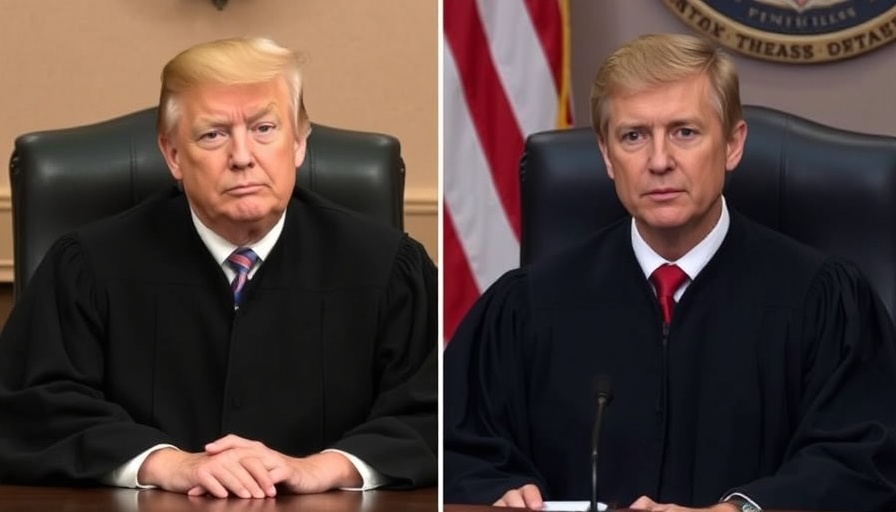
Wave of Firings: The Impact on Immigration Courts
In a sweeping move during a politically charged climate, the Trump administration has initiated a series of firings among U.S. immigration judges, now totaling at least 18 dismissed judges. Among them, two judges from the Bay Area—Judge Ila Deiss from San Francisco and Judge Kyra Lilien from Concord—were relieved of their duties, raising alarms about the potential implications of such a drastic action.
Political Implications of Judicial Dismissals
The firings of Judges Deiss and Lilien, who both notably granted asylum at substantial rates—92% and 76% respectively—suggest a possibly politically motivated agenda. Many see this as an attempt by the current administration to reshape the immigration judicial landscape, potentially aligning it more closely with their policies. Milli Atkinson from the San Francisco Bar Association noted the concern that these judges may have been targeted due to their political leanings, hinting at a troubling trend regarding the independence of judicial review in immigration cases.
Understanding the Judicial Landscape
Historically, immigration judges have been appointed based on their qualifications and experience. Judge Deiss, who joined the federal bench in 2017, had surpassed her probation period, which leads to speculation regarding the motivations behind her firing. Similarly, Judge Lilien, although on probation, reflects a broader concern about how the political climate may unduly influence judicial positions that were once regarded as apolitical.
The Implications for Local Communities
For residents in Bakersfield and surrounding areas, the implications of these dismissals are profound. The immigration system has significant effects on local communities, especially those with large immigrant populations. As judges like Deiss and Lilien grant asylum to those seeking refuge, their removal may lead to stricter interpretations of immigration law, further fuelling an already heated immigration narrative.
The Future of Immigration Justice
As the immigration court system faces unprecedented changes, community advocates and observers are left to ponder the future of immigration justice in America. As asylum seekers navigate a landscape that could become even more challenging, the stability of their cases rests in the hands of an administration willing to take drastic measures for ideological alignment.
Engaging in conversations about these pivotal changes in immigration law is crucial. If you want to stay informed and advocate for fair immigration practices, consider joining local advocacy groups to make your voice heard.
 Add Row
Add Row  Add
Add 



Write A Comment